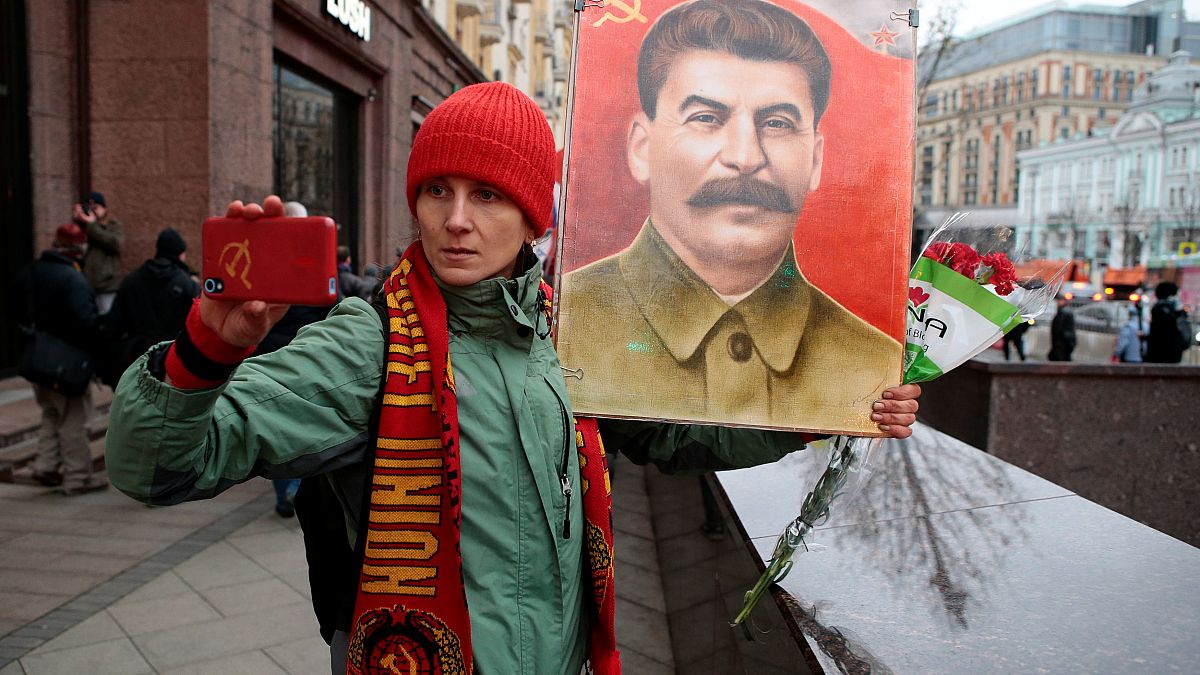Euronews talked to a Russian journalist about how the country looks at the events of 100 years ago
Andrei Zolotov, a freelance journalist, Russia’s current affairs observer, talks to Euronews about the centenary of the Russian revolution and what it means for modern Russia.
Euronews: “Who are those Russians who celebrate this date in the country today? Is there anyone who rejects it, is ashamed of it?”
Andrei Zolotov: “There is no national consensus on what this revolution actually means. There is an understanding that it’s an important event that has to be marked somehow, but whether to paint it positively or negatively – there is no position. That’s why there is a diversity of opinion expressed. Certainly, for the communists, this is the thing to celebrate, but other than that this is more of academic/historical/cultural occasion.”
Euronews: “How much you think the Bolshevik revolution heritage is felt in a typical Russian family these days? Any personal story passed on in your family?”
Andrei Zolotov: “There are very few families that carry documents or any evidence of what was the case for this or that family during or after the revolution. My family is quite an exception. I grew up with the photo albums and documents of my family dated back to 19-th century. So for me, the history of the civil war is very much a personal history.
There is one very interesting document in the family archive my grandmother gave me when I turned 14. My great-great father was an officer in the Russian army, he died in 1963. He created a special folder in his archive, that was called “Revolution in the army” and in this folder there were several certificates issued by the soldiers-soviets, these newly created bodies of Revolutionary soldiers, certifying he was a good and a trustworthy officer. But the most interesting document there was a draft of the letter, he was writing to his friend in November 1917.
This letter describes the destruction that was happening in the old army in November 1917, how everybody was stealing and how there was no discipline, how there was no way to provide food and clothing for the soldiers and how the entire structure was totally dismembering.
There was one line saying: “We are now like doctors of a dying patient, everybody is expecting from us something we cannot provide.”
Euronews: “Is this date or Soviet heritage as such is in any way exploited by certain groups or political parties in Russia. Or maybe the state? How the attitude towards it evolved in Russia after the collapse of the Soviet Union?”
Andrei Zolotov: “The official holiday, the main Soviet holiday of November the 7th, commemorating the revolution has long been gone. In the past several years it was replaced by Day of National Unity. The day off was respected but the emphasis was shifted from revolution to the “Liberation war” of 1612-1618.
So the tradition of celebrating something in the early November was turned into a new kind of a public holiday. The anniversary of the revolution itself is being exploited by fringe groups or radical opposition. But it not being exploited only in Russia. During Vienna city elections in October 2015 the populist “Freedom party” tried to take over the city council under the slogan of October revolution, you could see the posters with “October revolution” all over the city. So this is important, a major brand that can hardly be accommodated to the modern reality.”
Euronews: “And is there any investment into the historical investigation of repressions?
Andrei Zolotov: “There is a major a coincidence that the centennial of the revolution is the 80th anniversary of the Great Terror. The major national monument was opened in Moscow in the presence of the president and the patriarch.”
Euronews: “But the state didn’t connect these two events!”
Andrei Zolotov: “Formally no, but the timing of the opening makes this indirect connection.”
The full interview with Andrei Zolotov can be watched below.


